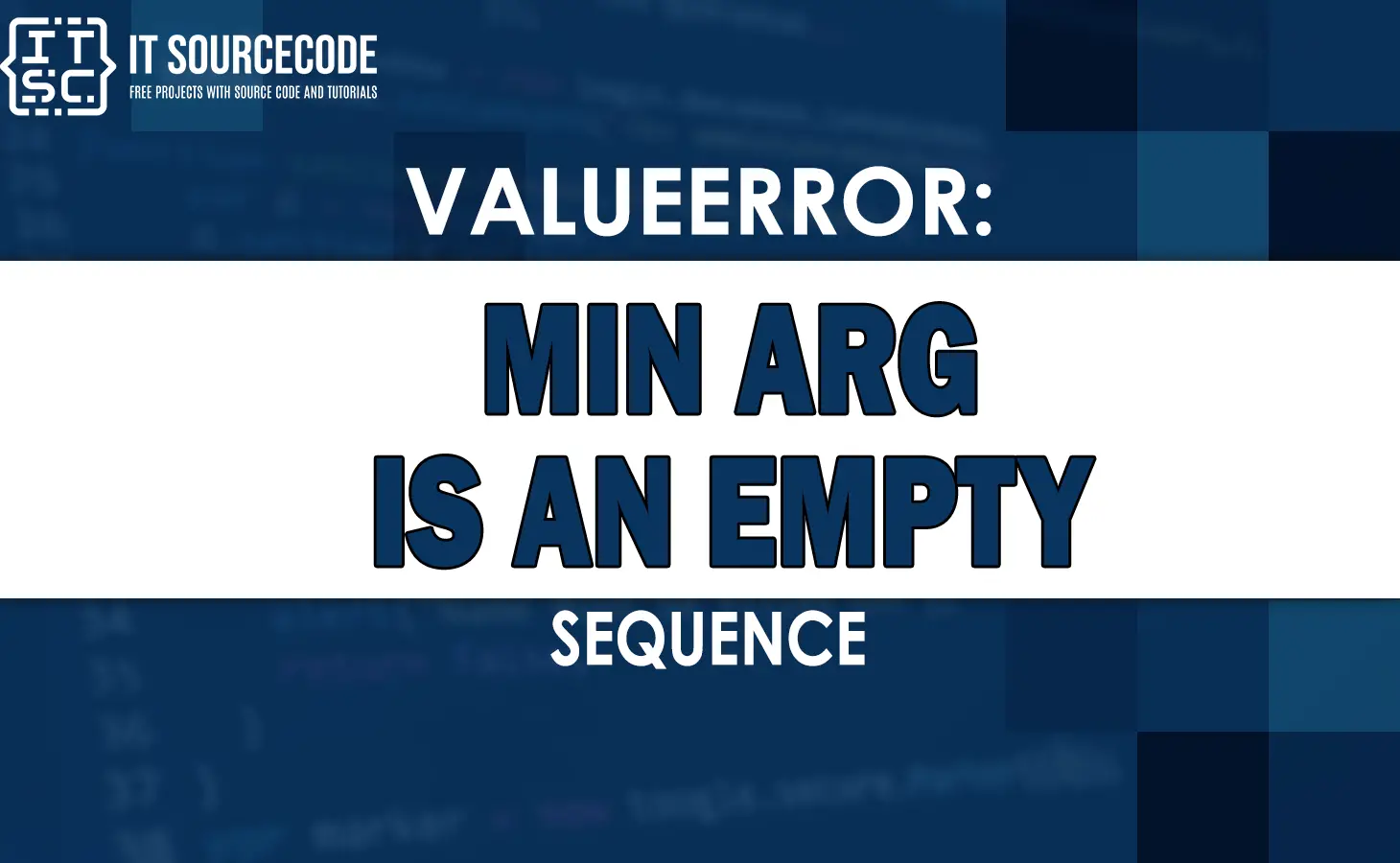Are you encountering “ValueError: min arg is an empty sequence” error in your code? Don’t worry, you’re not alone!
In this article, we will not only explain what this error means but also provide you with examples and solutions to help you fix it.
Understanding the ValueError: Min Arg is an Empty Sequence
The “ValueError min arg is an empty sequence” error typically occurs when we attempt to apply the min() function to an empty sequence or iterable.
The min() function is used to find the smallest element into a provided sequence. However, if the sequence is empty, it can’t complete the minimum value, resulting in this error.
Possible Causes of the Valueerror
Here are the following possible common causes of the valueerror:
- Empty List or Tuple
- Incorrect Data Type
How the Error Reproduce?
Here is an example code of how the error reproduce:
example_number_value = []
minimum_result_example = min(example_number_value )Output:
Traceback (most recent call last):
File “C:\Users\Dell\PycharmProjects\Python-Code-Example\main.py”, line 2, in
minimum_result_example = min(example_value)
ValueError: min() arg is an empty sequence
In the example above, the example_number_value list is empty, and when we attempt to find the minimum value using the min() function, it raises the ValueError because there are no elements to compare.
How to Fix the Valueerror: min arg is an empty sequence?
Here are the following solutions and examples to solve the Valueerror: min arg is an empty sequence.
Solution 1: Check for an Empty Sequence
Before using the min() function, it is important to make sure that the sequence is not empty or null.
You can use an if statement to check if the sequence has elements before applying the min() function.
Here’s an example code:
example_number_value = [1, 2, 3]
if example_number_value:
min_value_sample = min(example_number_value)
print(min_value_sample)
else:
print("The sequence is empty.")By checking if the sequence numbers have elements, we avoid calling the min() function on an empty sequence, preventing the ValueError to occur.
Solution 2: Provide a Default Value
If your code needs a default minimum value when the sequence is empty, you can use the default parameter of the min() function.
This parameter defines the value to return if the sequence is empty.
Here’s an example code:
example_number_value = []
minimum_result_example = min(example_number_value, default=0 )In this example, the min() function will return 0 if the numbers sequence is empty.
You can change the default value based on your specific requirements.
Solution 3: Check the Input Data
Sometimes, the value error might occur due to incorrect or unexpected input data.
Make sure that the sequence you are attempting to find the minimum is occupied with the appropriate values and data types.
Debugging and checking the input data can help prevent this error.
FAQs
The “min arg is an empty sequence” error occurs when we try to find the minimum value in an empty sequence, such as an empty list.
The error occurs when you are trying to use the min() function on an empty sequence, such as an empty list or tuple. The error is raised because there are no elements in the sequence to define the minimum value.
Conclusion
In conclusion, the “Min Arg is an Empty Sequence” can occur when we provide an empty sequence as an argument to a function or method that expects a non-empty sequence.
By following the solutions presented in this article, you can effectively resolve this error in your Python programs.

